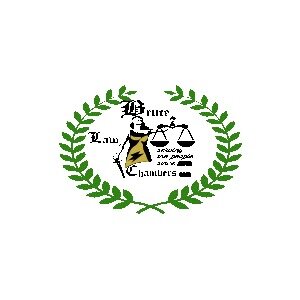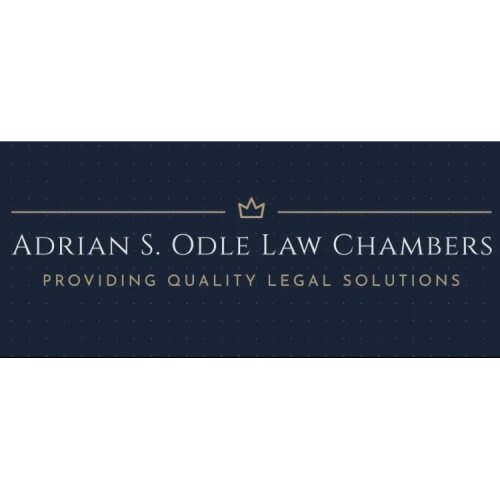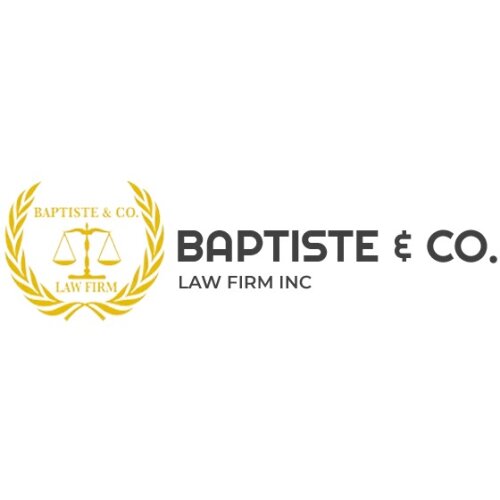Best Communications & Media Law Lawyers in Kingstown
Share your needs with us, get contacted by law firms.
Free. Takes 2 min.
List of the best lawyers in Kingstown, Saint Vincent and the Grenadines
About Communications & Media Law in Kingstown, Saint Vincent and the Grenadines
Communications & Media Law in Kingstown, Saint Vincent, and the Grenadines encompasses legal issues related to the dissemination of information through various media channels, including print, broadcast, and digital platforms. This area of law governs the regulation and operation of telecommunication services, the protection of intellectual property, privacy rights, and the ethical standards of media practitioners. Due to the rapid evolution of digital media, this field is both dynamic and complex, involving adherence to both local laws and international standards.
Why You May Need a Lawyer
Legal assistance in Communications & Media Law may be necessary in several scenarios such as:
- Defending against defamation suits or dealing with accusations of libel or slander in published content.
- Negotiating and drafting contracts for media production, distribution, or licensing.
- Protecting intellectual property rights, including copyrights and trademarks associated with media content.
- Ensuring compliance with telecommunication regulations and broadcasting licenses.
- Addressing privacy concerns and data protection issues in digital communications.
- Navigating the legalities surrounding advertising and marketing practices.
Local Laws Overview
The legal framework for Communications & Media in Kingstown is influenced by both domestic legislation and regional agreements. Key elements include:
- The Broadcasting Act, which regulates television and radio broadcasting services.
- The Telecommunications Act, which oversees telecommunication services and maintains fair competition.
- The Copyright Act, protecting the rights of creators in various media forms.
- Defamation laws, addressing libel and slander, especially pertinent in news reporting and publications.
- The Data Protection Act, focused on safeguarding personal information in electronic communications.
Frequently Asked Questions
What constitutes defamation in Saint Vincent and the Grenadines?
Defamation involves false statements that unjustifiably harm another’s reputation. It can be in written form (libel) or spoken (slander), and it must be communicated to a third party.
Are online publications subject to the same regulations as traditional media?
Yes, online publications are subject to the same laws as print and broadcast media, including defamation laws and advertising standards.
How can I protect my content's intellectual property in digital media?
You can protect your work by securing copyright or trademark registrations and ensuring that your work is properly attributed and licensed where necessary.
What should I do if I am accused of copyright infringement?
Seek legal advice immediately to evaluate the claim's validity and explore potential defenses or settlements.
What are my rights under the data protection laws?
You have the right to know how your personal information is being collected, used, and shared, and you can request changes or deletion of your data under certain conditions.
Can I use someone else's images or music in my content?
Only with proper licensing and permissions, unless the material falls under fair use exceptions which are limited in scope.
How do telecommunications regulations impact my business operations?
You must comply with licensing requirements and operate within the guidelines as stipulated by the Telecommunications Act to ensure fair competition and services.
What steps can I take to prevent defamation suits?
Implement strict editorial checks and acquire legal review of content to ensure accuracy and fairness before publication.
Are there restrictions on advertising in media?
Yes, advertisements must comply with ethical standards, truthful representation, and not be misleading or falsely exaggerated.
How can I resolve a media law dispute without going to court?
Consider alternative dispute resolution methods such as mediation or arbitration to settle conflicts amicably and efficiently.
Additional Resources
Consider reaching out to the following bodies for guidance and support:
- The Eastern Caribbean Telecommunications Authority (ECTEL) for telecom-related queries.
- The Intellectual Property Office for concerns related to copyrights and trademarks.
- The Broadcasting Authority for any issues or complaints regarding broadcasting services.
- Legal aid organizations that can offer assistance and advice for media-related legal problems.
Next Steps
If you require legal assistance in Communications & Media Law, it's advisable to:
- Consult with a lawyer specializing in media and communications law to understand your rights and obligations.
- Gather comprehensive documentation relevant to your case or inquiry to facilitate the legal aid process.
- Contact local government bodies or professional organizations for further information on resources and legal counsel.
Taking these steps can help you navigate the complexities of Communications & Media Law effectively and ensure you are legally protected in your endeavors.
Lawzana helps you find the best lawyers and law firms in Kingstown through a curated and pre-screened list of qualified legal professionals. Our platform offers rankings and detailed profiles of attorneys and law firms, allowing you to compare based on practice areas, including Communications & Media Law, experience, and client feedback.
Each profile includes a description of the firm's areas of practice, client reviews, team members and partners, year of establishment, spoken languages, office locations, contact information, social media presence, and any published articles or resources. Most firms on our platform speak English and are experienced in both local and international legal matters.
Get a quote from top-rated law firms in Kingstown, Saint Vincent and the Grenadines — quickly, securely, and without unnecessary hassle.
Disclaimer:
The information provided on this page is for general informational purposes only and does not constitute legal advice. While we strive to ensure the accuracy and relevance of the content, legal information may change over time, and interpretations of the law can vary. You should always consult with a qualified legal professional for advice specific to your situation.
We disclaim all liability for actions taken or not taken based on the content of this page. If you believe any information is incorrect or outdated, please contact us, and we will review and update it where appropriate.











